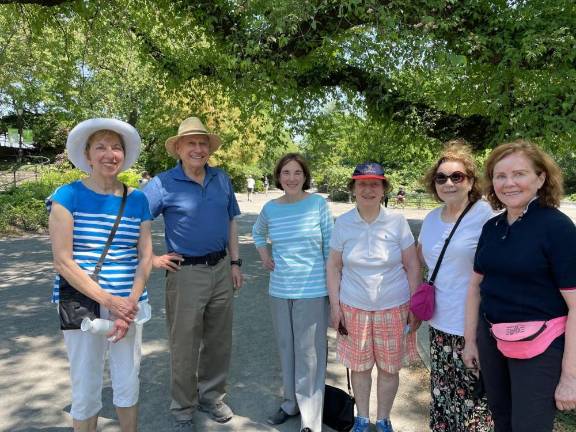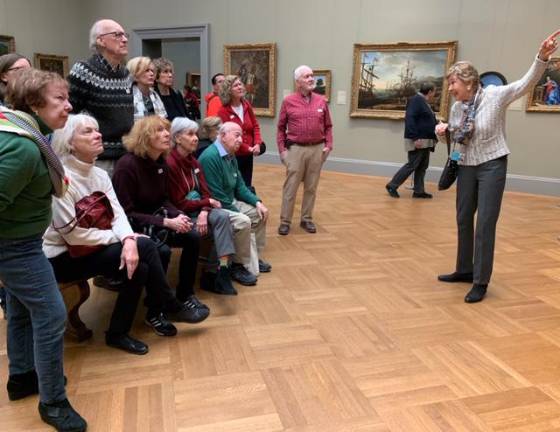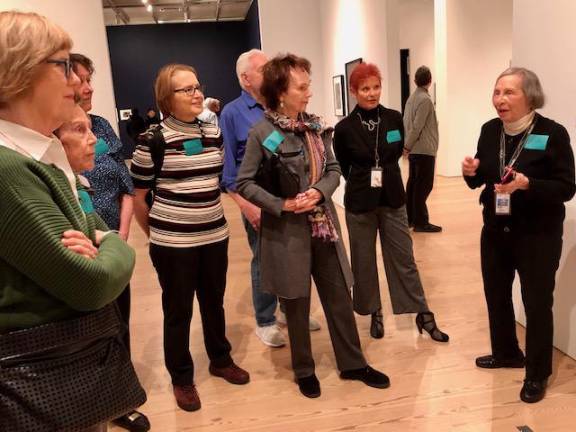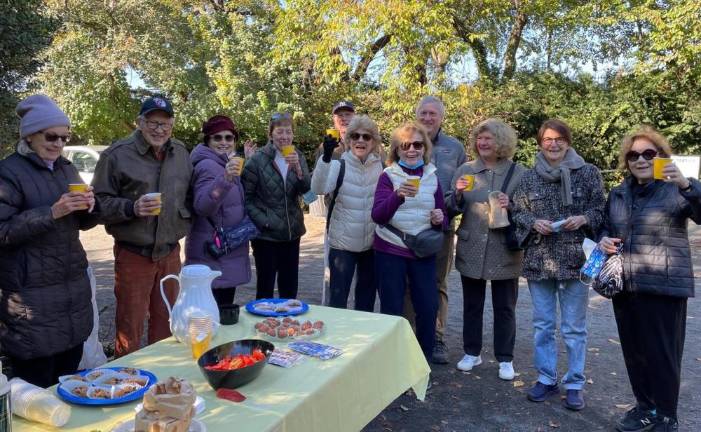Avoiding Social Isolation
How neighborhood organizations have helped NYC’s older adults thrive during the pandemic




Every Tuesday morning at 11 a.m. during the pandemic, Shirley walked a mile-and-a-half in Central Park. A concert pianist in her early 90s, she faithfully participated in a weekly walking group called “One + One Walk,” which began and ended at the north side of Engineer’s Gate. The walk was organized by Carnegie Hill Village, a nonprofit grassroots organization. According to its website, the organization assists “older residents of Manhattan’s Carnegie Hill neighborhood with social connections, information and personal resources that can enable them to continue living at home, in their neighborhood, as they age.”
Several months after participating in the group, Shirley didn’t show up for two consecutive Tuesdays. The president of Carnegie Hill Village, Gilda Wray, grew concerned and called Shirley. As it turned out, Shirley had simply gone to visit her son out of state for a few weeks, but she was so touched that Gilda and other members of the walking group had noticed her absence. The following Tuesday, she was back at the park, telling tales from her vacation with her fellow walkers.
Carnegie Hill Village is a prime example of the critical role that grassroots neighborhood organizations for older adults, often called age-friendly neighborhood organizations (AFNOs), have played, especially during the last several years. AFNOs develop targeted solutions to neighborhood-level issues that impact the older residents in their neighborhoods.
AFNOs can take the form of volunteer-run associations, initiatives connected to local nonprofit organizations, or membership-based “villages” that help to coordinate critical services and programs for older adults. AFNO activities might include cultural, social, and educational events, exercise programs, and/or coordinated efforts to work with local government on community and economic development.
Social distancing helped to protect people of all ages from contracting COVID. Yet it also led to social isolation with increased risk of negative impacts like dementia, depression, anxiety and suicide, according to the World Health Organization. Fully half of adults age 65+ on the Upper East Side live alone. The risks of isolation and loneliness are real for them.
Picnic Lunches and Art Lectures
In the summer of 2020, the Center for Healthy Aging at The New York Academy of Medicine (NYAM) started monthly convenings of AFNOs, including Carnegie Hill Village, thanks to funding from the New York Health Foundation and UJA-Federation of New York. NYAM has a long history with these AFNOs, and published “Creating an Age-Friendly NYC One Neighborhood at a Time” in 2012.
NYAM brought together leaders of these organizations to share resources, discuss neighborhood issues, and develop a collective voice for aging service professionals and elected officials to hear about the challenges and opportunities of aging-in-place. Virtual meetings made the connections possible during that first summer of the pandemic. NYAM also distributed grants to nine of the participating AFNOs to support projects to alleviate social isolation in their neighborhoods. The grants were used in different ways: for the purchase of computer tablets, Wi-Fi connections, virtual educational classes, and digital and print newsletters across the city.
During the monthly convenings, AFNO leaders shared stories about how their organizations kept up services despite the ongoing pandemic, and generated ideas for other AFNOs to emulate. Carnegie Hill Village, for example, organized picnic lunches and virtual art lectures with museum docents. Lifeforce in Later Years (LiLY) in Morningside Heights started a “Depression Support Group.” Harlem Advocates for Seniors developed a mobile computer lab that enabled older adults in senior housing in Central and West Harlem to access online educational and cultural programs.
In a survey of AFNO participants, NYAM found that the number one reason that respondents reported participating in AFNO activities was for social connection, followed by intellectual stimulation, physical activity, and learning about community resources. Over two-thirds of participants reported feeling more connected to their neighbors since joining their respective AFNO community. Nearly half of respondents said that they had offered to help fellow community members during the pandemic with tasks such as buying/delivering groceries, conducting wellness checks, and sending PPE care packages.
The survey information and the monthly convenings helped NYAM to create a toolkit to help take AFNOs to the next level, called “How To Thrive Together: A Toolkit To Sustain, Grow & Fund Your Age-Friendly Neighborhood Organization.” With additional support from the New York Community Trust in 2021, NYAM continued these monthly convenings and worked with the organizations to implement the strategies outlined in the toolkit. Carnegie Hill Village, for example, has taken a page out of the toolkit’s playbook. Gilda, Shirley, and the organization’s more than 160 members continue to participate, socialize and innovate as they provide new social opportunities for the 65+ population on the Upper East Side. To learn more, check out their website. Or just stop by Engineer’s Gate next Tuesday at 11 a.m.
Elana Kieffer is the Director of NYAM’s Center for Healthy Aging and Dr. Judith A. Salerno is the President of NYAM.
Harlem Advocates for Seniors developed a mobile computer lab that enabled older adults in senior housing in Central and West Harlem to access online educational and cultural programs.